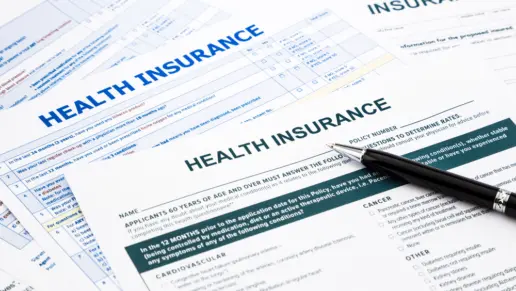Gambling disorder, formerly known as pathological gambling, compulsive gambling, gambling addiction, and problem gambling is an addictive disorder recognized by the American Psychiatry Association as the first behavioral addiction not related to a substance like drugs or alcohol.
By gambling we mean putting something of value at risk (typically money) and hoping to win a reward of more value.
Many adults gamble. In fact, studies show that 70% of Americans do so in any given year. Yet a minority of them have a gambling disorder. The issue affects around 1.2% of the world’s population. Why is gambling so problematic? Isn’t it just a way to have fun?
Problematic gambling entails more than losing money. It opens the door for multiple negative consequences. This can include domestic violence and broken relationships that transmit across generations. Those affected may also experience financial distress and severe mental health challenges.
A person with a gambling disorder is 15 times more likely to die from suicide than the general population.
The various ways people can gamble in 2024 are abundant. More than 80% of countries worldwide have a form of legalized gambling. Electronic gambling machines, lotteries, online poker and sports betting provide individuals with ample opportunities to try their luck.
Many myths circulate around gambling so it’s best to clarify what is real and what is not.
Myths and Facts about Gambling Addictions
Myths surrounding gambling addiction are ubiquitous and may only increase the stigmatization while decreasing the likelihood that those who need care will seek it.
Myth: People who gamble are immoral.
The media portrays gamblers as irresponsible individuals with questionable morals. However, this depiction is false.
Gambling addiction and problem gambling are characterized by higher levels of impulsivity. This is a characteristic that’s also present in alcoholism which may cause individuals to engage in risky behaviors with little thought about negative consequences. This may explain why they continue gambling despite bad outcomes.
Myth: Gambling is not a real addiction.
The evidence shows that gambling is the first non-chemical addiction acknowledged by the American Psychiatric Association because the effects it has on a person’s well being resemble the negative impacts of drugs and alcohol.
Myth: Unless you play every day you don’t have a gambling disorder.
The central criteria for a gambling disorder diagnosis is not how many times a week a person gambles; it’s how damaging the consequences are for their personal lives, mental health and relationships.
Myth: Gamblers are just bad at managing money.
The financial impacts of gambling are the result of the compulsion and not the cause. Chronic gambling may affect the brain by generating a compulsion for constantly gambling. This could potentially shift how a person experiences rewards and punishment and increase the risk of addictive behavior in which a person may find it almost impossible to stop gambling.
Myth: Problem gamblers’ relationships always end due to money problems.
Financial difficulties can strain a relationship. Yet partners of problem gamblers indicate that the constant lying and resulting lack of trust is the principal reason for breaking up.
Myth: Gamblers are caused by poor parenting.
Disordered gambling brings a lot of shame to families so blaming the parents of problem gamblers is a common way to explain why things happen. Yet it’s not fair nor accurate as problem gamblers’ behavior is influenced by a combination of biological, psychological and environmental factors..
Myth: As long as you still have money, gambling is not an issue.
A gambling disorder diagnosis does not depend on how much money you have left. Instead it depends on how it affects your capacity to live a productive life and maintain healthy relationships and its impact on your mental health.
Myth: If you love a gambler then you will pay their debts.
Paying off a loved one’s debts is not recommended because it may enable the continuation of the same gambling pattern.
Myth: If a gambler keeps playing, their luck will change, and they will win back their lost money.
Betting outcomes are independent of each other. Flipping heads 10 times in a row doesn’t make tails any more likely on the eleventh flip of a coin toss. The gambler’s fallacy which is believing that bad luck cannot last forever is a flawed belief that costs gamblers a lot of money and pain.
Myth: Gambling is a valid way to make extra money.
Gambling in general is a way to lose money. Researchers estimate that by 2028 gambling net losses will reach $700 billion. The entire business structure of casinos and online betting platforms depends on one principle: gamblers lose most of the time.
Gambling Addiction Signs and Symptoms
Here are the signs and symptoms of a possible gambling addiction. Remember that a qualified professional must establish a gambling disorder diagnosis.
- Using gambling as a means to evade or escape negative emotions or problematic life situations
- Constantly thinking about past gambling experiences or future gambling opportunities
- Continuing to gamble despite wanting to stop
- Growing irritable or restless after spending time without gambling
- Lying to loved ones or employers about the severity of their gambling problem.
- Chasing losses by continuing to gamble to recover what they lost
- Letting gambling obstruct opportunities to connect with others, get a promotion or succeed at school
- Getting financial help from loved ones to solve monetary problems caused by gambling.
- Needing to spend more and more money to feel the rush that gambling used to elicit
Self Help and Support Groups for Gambling Problems
If you struggle with problematic gambling then the best step you can take is to seek professional help. Here are some self help tips you can implement.
- Use screening tools to help you gauge (not diagnose) if you may be struggling with a gambling disorder.
- If you struggle with substance abuse or are experiencing mental health challenges then don’t isolate yourself trying to solve everything on your own. These conditions can aggravate gambling so it’s better to ask for help.
- Stick to slower paced games if you choose to gamble. Fast paced games encourage repeated play which can augment losses and lead to damaging consequences.
- Limit your access to readily available money. Leave debit or credit cards at home.
- Establish entertainment money limits that you cannot surpass to monitor how much you spend on gambling.
- Audit your social circle. Are they promoting or encouraging your gambling? Take action if you notice a negative influence.
Strategies to Deal with Gambling Cravings
Addictions like gambling may come with cravings that are tough to combat. Here are a few strategies.
- Ask yourself why you want to gamble. Are you experiencing a situation you want to escape from? Are you just looking for fun? Understanding the underlying reasons for your desire to gamble can bring clarity and may prevent impulsive behaviors.
- Talk about your gambling issues with someone you trust. An open communication channel is always a good strategy to avoid keeping all the emotions you are experiencing to yourself.
- Plan how you will spend your time now that you’re not gambling. Rekindle past hobbies, participate in healthy social gatherings in your community and keep yourself busy in activities that promote your well being like sports.
- Some casinos offer the possibility of excluding yourself from them so ask establishments close to you if this is an option in case you consider it helpful for your circumstances.
Don’t rely exclusively on willpower to control your cravings. Avoid temptations like socializing in casinos, carrying large amounts of cash or spending leisure time with friends who are also struggling with problematic gambling.
How Do I Know if Someone Has a Gambling Addiction?
If you worry someone close to you might be struggling with disordered gambling then there are psychological and behavioral changes that people with a gambling disorder may show. Here are some of them.
- Is gambling taking precedence over their responsibilities?
- Have they lost interest in things they used to be passionate about like hobbies? When individuals prioritize gambling over what they used to care about then it may be a sign of trouble.
- Do they keep gambling despite losing a job, having troubles at home or other negative consequences associated with gambling? These behaviors may suggest a potential gambling disorder.
- Are they diverting money from things like groceries, mortgage payments or other essential spending for gambling?
- Do they seem anxious, irritable or restless when not gambling? Distressing mental health states may insinuate a compulsion for gambling.
- Are they lying about their gambling? Do they borrow money deceitfully to cover their losses and try to disguise the extent of their problem?
Remember that it’s not always possible to identify if a friend or loved one is having problems with gambling. Many individuals hide the extent of the issue even from their spouses until it becomes too big to hide.
Where Can I Find Information About Gambling Addiction Treatment?
The Substance Abuse and Mental Health Administration (SAMHSA) provides a round the clock National Helpline at 1.800.662.4357 that you can call to access mental health support and addiction treatment resources. They may also have information on gambling addiction treatment.
Rehab.com is a leading resource hub for finding rehabilitation centers in the US. Rehab.com provides education about every facet of behavioral addictions like gambling. The database of facilities will help you find the best alternative that adapts to your beliefs, circumstances and insurance so you can start a new life free from the hold of gambling. You can use the online rehab finder tool to search for a center near you.
The National Council on Problem Gambling provides recovery resources through a direct gambling addiction hotline at 1.800.GAMBLER, via text at 800GAM or bychat. They offer recovery alternatives in your area.
Gamblers Anonymous lists addiction gambling treatment alternatives on its website and offers helplines in every state you can call to find local support groups.
You can also ask your pharmacist, doctor or other trusted healthcare professional questions about where to find in your community the help you need to access gambling recovery support.
What Are the Treatment Options for Compulsive Gambling?
Many individuals fear being labeled as a “problem gambler” due to the social baggage gambling carries which discourages them from getting the support they need. Don’t let that be you.
Seeking help for a gambling disorder could be the best decision you ever make.
Inpatient Treatment
Inpatient treatment provides individuals struggling with problematic gambling with a residential program that helps them work on their recovery full time.
Distancing yourself from familiar faces and places you associate with gambling can work wonders to begin a new chapter in your life.
Inpatient programs provide structure. You will meet others fighting the same battle as you, access clinically validated group and individual counseling and work on the triggers that influence your gambling while understanding the underlying reason for it.
Problematic gambling rarely occurs in isolation. Research reveals that 96% of individuals with a gambling disorder also have psychiatric conditions and 22% to 64% of them may be battling a concurrent substance disorder. In residential facilities you will work on your mental health and learn coping skills to create genuine change that lasts.
Outpatient Treatment
Outpatient treatment alternatives help individuals with gambling disorders access help in a way that’s more flexible and adaptable to their circumstances. This enables them to continue working and living at home while receiving treatment.
Outpatient modalities offer several protocols like cognitive behavioral therapy and recovery education. Treatment protocols are designed to align with each person’s needs and life situation.
You’ll develop coping skills, meet individuals committed to a gambling free life and uncover the tools and internal strength to start over again. Gambling addiction therapy can help you work through the issues that are driving you to gamble so you can overcome them and find long-term recovery.
If you have a co-occurring mental health condition such as obsessive compulsive disorder (OCD) or depression then some FDA-approved medications including antidepressant medications may be helpful.
Aftercare
A life without gambling is built one day at a time. After completing a recovery treatment program the journey ahead requires careful planning.
Aftercare programs are a recovery modality that considers a person’s unique circumstances, challenges and potential triggers to design a healing roadmap.
The value of this approach is that it tailors an individual program to help a person keep connected to gambling-free communities, access therapy and continue developing lifelong coping skills so they can thrive after the gambling stops.
A gambling disorder can happen to anyone. If gambling is preventing you from being the best version of yourself then judgment-free support is available. Don’t bet on your future. Seek gambling addiction help today.





